It took two months for Emma Stroud and her husband, Rahtu, to get a roof back on their Academy neighborhood home. Even getting a tarp proved difficult during the weeks that followed the May 16 tornado.
The high winds of the EF3 twister tore off a portion of the roof of their 120-year-old home, leaving a massive hole in its flat area and throwing the rest into the nearby yard.
Rainwater drenched their keepsakes and walls over those two months as the couple argued with their homeowners insurance provider, State Farm, over the cost and type of roof the company proposed putting on the house.
It wasn't long before the water reached the first floor, where they host small community music performances most weekends, damaging a galaxy mural painted on the main floor's ceiling.
The couple had a $500,000 policy on their home. Stroud had worried about a day like this, when a tornado or something else might damage her home, from a previous incident when a tree fell on her past home. She wanted to be prepared this time.
"We have this coverage because we wanted to be prepared if there was a disaster," Stroud said. "We paid for it, and now we need it, and they're not honoring our policy."
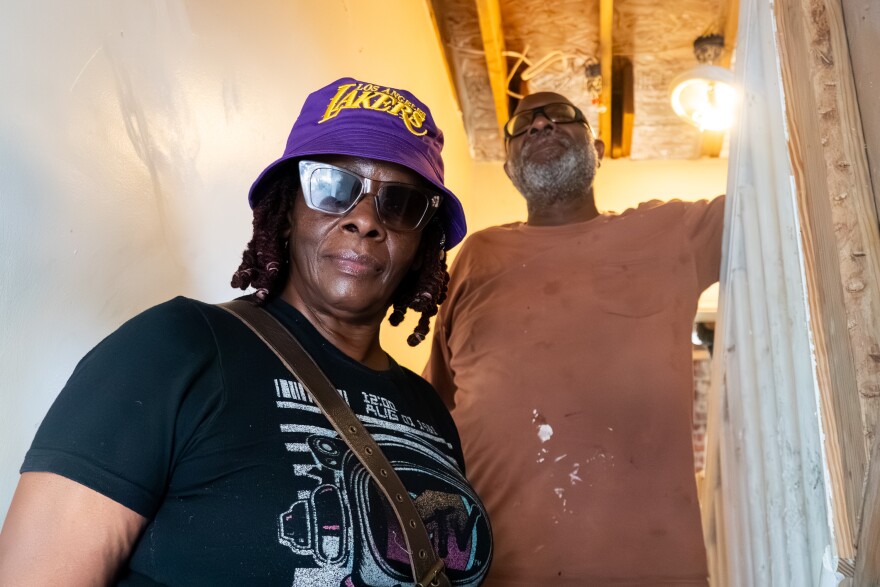
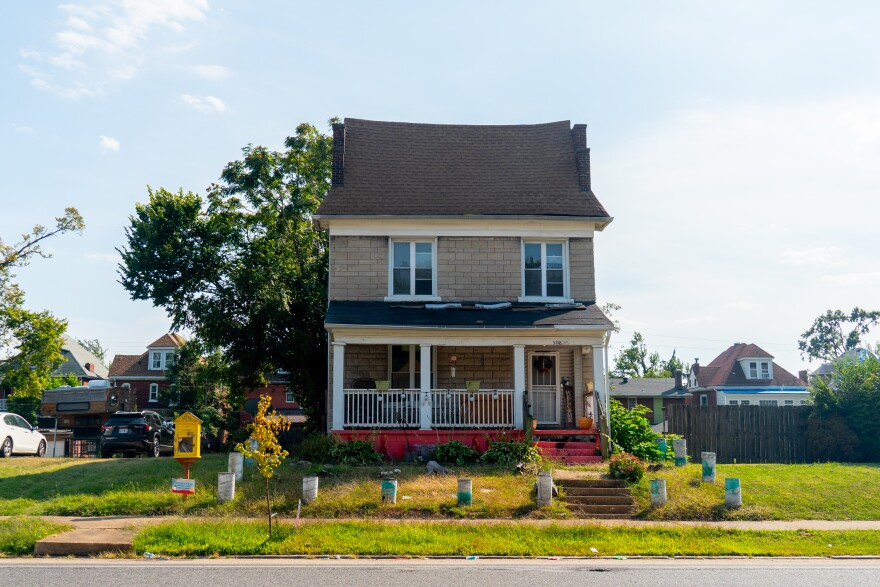
It's a common problem following the tornado. In July, the St. Louis NAACP chapter called for an investigation into insurance companies it says failed Black homeowners who experienced damage from the storm.
State Farm and Allstate Insurance, two providers in the community that St. Louis Public Radio heard several complaints about, did not respond to a request for comment about post-tornado insurance claims in north St. Louis.
Stroud was among a group of residents that gathered months ago at a Ward 10 meeting hosted by Alderwoman Shameem Clark-Hubbard focused on insurance issues post-tornado. She said she felt she was running out of options.
After months of haggling, Stroud and her husband pooled their savings and borrowed money from friends to put a new roof on the home themselves. Work that they say was approved to restore their second floor has also stopped due to stalled payments from the provider.
What's more, they say State Farm denied them loss of use, a mechanism in some homeowner insurance policies that sees policy providers pay for temporary housing when homes are rendered uninhabitable.
Stroud said she was told that because the house had a working kitchen and bathroom, they were expected to stay, even after Federal Emergency Management Agency inspectors ruled the house uninhabitable.
To date, more than six months after the tornado, she's received just $20,000 from the $500,000 policy on the home — and they've yet to move back in. After dealing with countless adjusters with State Farm, she said she has little to show for it and feels cheated.
"They fought us every step of the way until it got to the point where I was just drained," she said. "I've been paying into the system for over 40 years. Now, when I need it, it's not available to me."
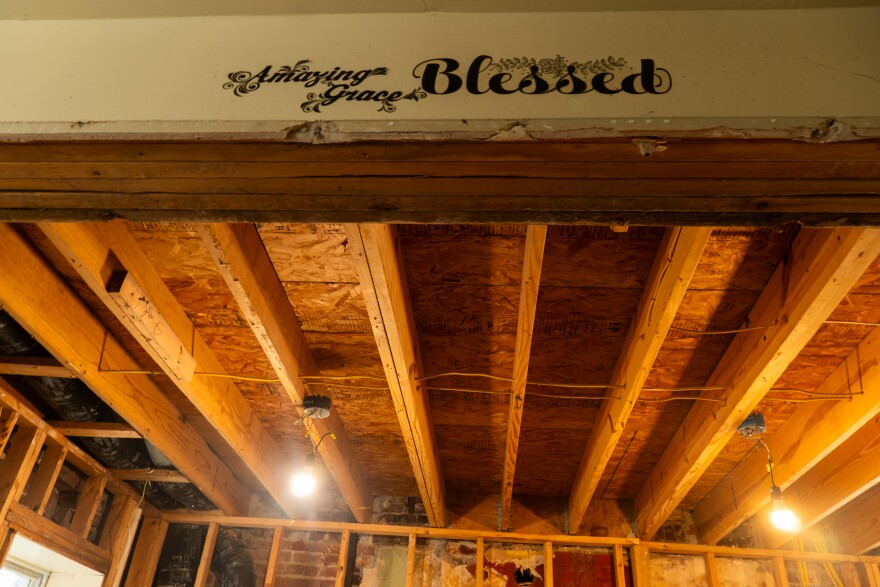
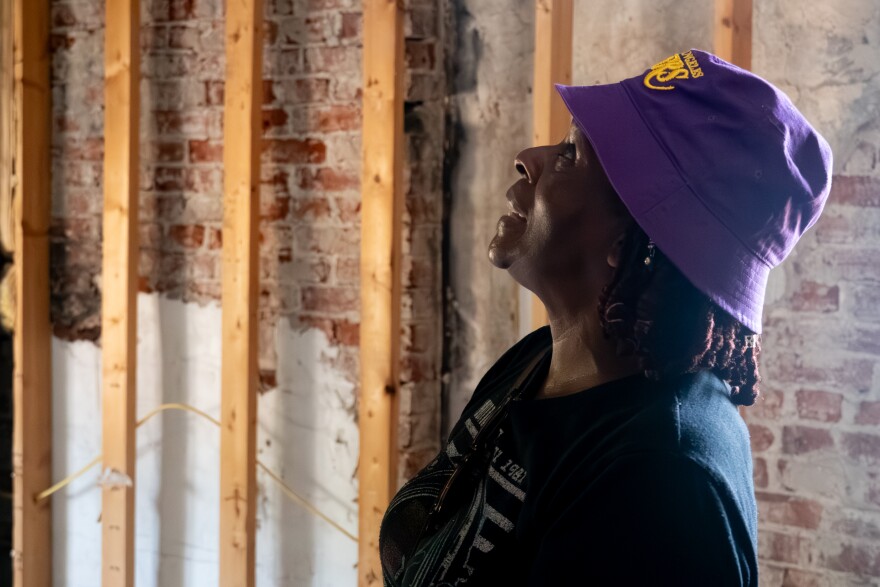
At the ward meeting, residents shared stories about struggles with insurance companies and heard from local experts on the topic.
Greg Wings, a local construction and case manager who specializes in storm damage, spoke at the event. As part of his work, he negotiates with insurance companies on behalf of policyholders.
Months after the tornado, he said he regularly meets people frustrated with their insurance companies. He's helped roughly 25 homeowners in the months following the tornado.
Wings said people who did have policies were underinsured or their homes were undervalued. In cases in which homeowners like Emma Stroud and her husband did have large policies, he said insurance companies fight "tooth and nail" to save money.
"There's just a lot of abuses going on out there," he said. "Insurance companies are in business to make money. They give a $300,000 policy with no intention of ever letting that policy max out, unless the house just blows away or burns down and it disappears."
Wings said his clients deal with slow responses and low-ball estimates on repairs that slow down recovery. Many north St. Louis homes damaged by the tornado will never be rebuilt to what they were, even if they had insurance, he said.
It's a shock to many of his clients, he said, who feel surprised when they learn the policy they thought would cover their full home doesn't cover a full recovery.
"They're surprised because they get birthday cards, anniversary cards and all that stuff from the agents while things are peaceful," he said. "But the moment they file a claim … it's almost like the client becomes a villain."
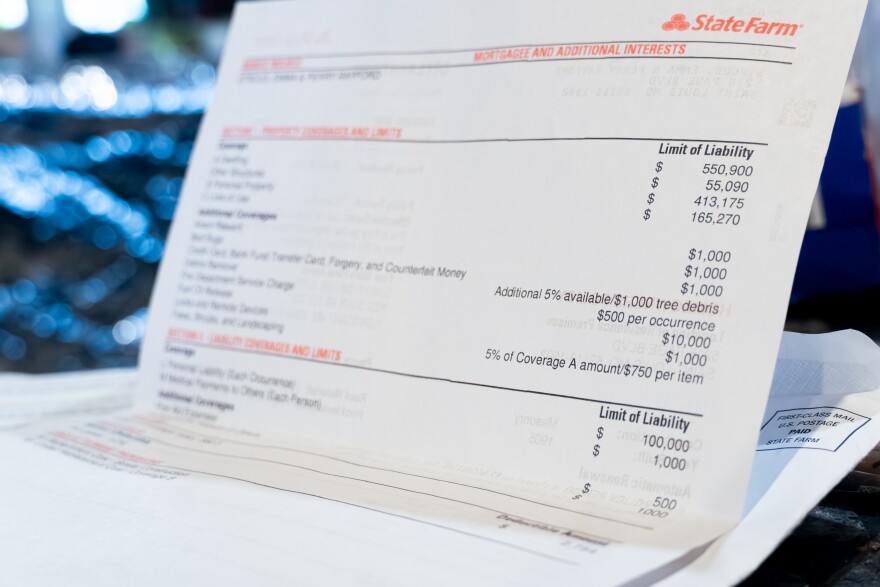
Filing complaints
This summer, St. Louis NAACP leaders began hearing community members complain about insurance companies underestimating their home's damage and not offering enough to help repair roofs or destroyed walls. They hosted an insurance town hall with the city and the Missouri Department of Commerce and Insurance to help residents find answers to lingering insurance issues caused by the May tornado.
Longtime Sherman Park resident Stacie Nash came to that meeting to share frustrations with Allstate Insurance. She said she had to jump through hoops just to collect part of her $125,000 homeowners policy.
"It took my adjuster over a month … to come in and do a walk-through on my structure alone," Nash said. "It took him another four weeks to come back, and they were hemming and hawing back and forth that I had to finally seek somebody on the legal recourse to see what I could do."
Once she hired a lawyer, she said the process became a little easier. But it did not move as fast as she would have liked, because she maxed out her $11,000 living expenses coverage on hotel stays. She said what bothers her the most is that for decades not a single insurance agent told her to consider a better homeowners policy.
"[For] 41 years I paid $360 monthly for home insurance alone, you would have thought I had a top-tier replacement value. I did not," she said. "I met an insurance person who I made an appointment with and she ran the numbers for me, $50 more. … I would have had a top tier replacement value insurance policy."


The state Department of Commerce and Insurance said it's hearing similar issues from people whose homes were severely damaged in the storm but cannot do anything without a formal complaint from them on file to begin the investigation.
Angela Nelson, the director of Commerce and Insurance, said most of the complaints from the St. Louis tornado are about adjusters underestimating the home's destruction.
"It really appears to me to be situations where the homeowner may have engaged a contractor, and the contractor believes these 10 things need to be repaired," she said. "The insurance companies' claim adjusters look at it, and they're saying, 'Well, we only see seven of these.'"
She is also receiving complaints from consumers who believe that their insurance claims are not being processed fast enough. She became aware that some people with homes hit by the tornado were being dropped from their insurance carriers. This prompted her to release a "forceful bulletin" on Oct. 13 to all insurers in the state to warn them about dropping Missourians who were devastated by the recent storms.
She said it is not normal for insurance companies to drop consumers after major natural disasters.
"An insurance company is acting almost kind of in a fiduciary capacity, so they're taking the premiums that each of us pay, they put them in a big pot, and then they're administering them," Nelson said. "They're trying to make sure that when they make claims payments, they're making the right ones and that they're not allowing certain people to profit or to get more than what they're actually entitled to, because they want to make sure that our premiums stay as affordable as possible."
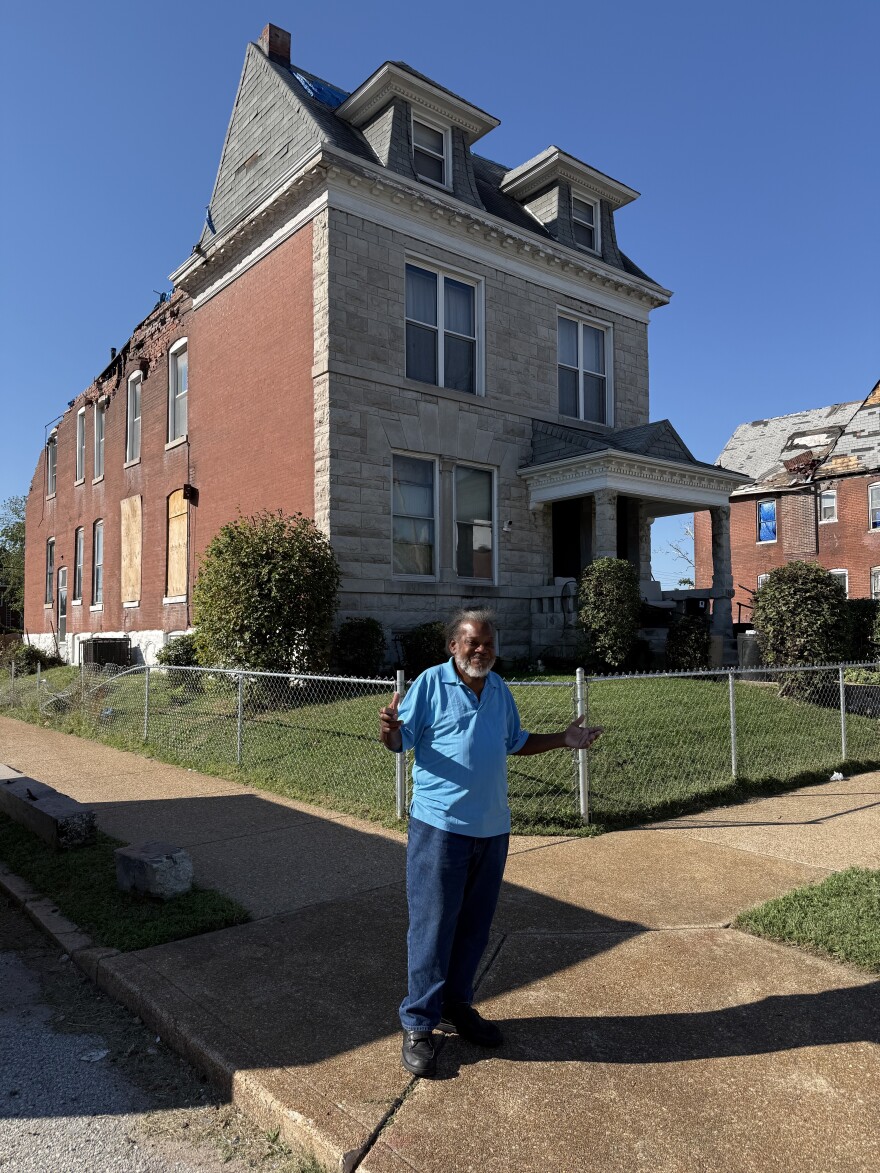
What was lost
During the storm, Nash's generational home on Cates Avenue was destroyed. The roof blew off, sending piles of bricks inside the three-story home where Nash was working. She suffered damage to her knees because she had to crawl out of her home of 65 years. Thirty-two windows were broken, her chain-linked fence was dismantled, and some walls caved in. She said it was a nightmare, but she wants to rebuild.
"This home held a lot of memories," she said. "My mother and father were married there, all the family members basically used that house as where they were married. They had family gatherings there."
Nash said she does not sleep much because she is constantly thinking about decisions she has to make for her home.
Right now, she is reviewing bids from contractors, but she wants the city's help with funding. Nash said she has applied for several programs offered by local nonprofits and the city, but is still waiting on responses.
So far, the insurance company has only paid out about $100,000, but Nash said she is waiting on more, as she continues negotiating payouts from some of her policies with Allstate.
"The tariffs and the way the cost of materials are now and the masonry work alone is saying that's going to be close to $200,000 just for the bricks," Nash said. "My house is still standing, it's not completely down, but the back wall certainly has to come down enough to be built back stabilized."
U.S. Sen. Josh Hawley's office is helping people get the money they deserve from insurance companies. He said over 200 people reached out in some capacity to his staff to discuss tornado-related insurance issues.
"Several insurance companies appear in these complaints, though State Farm and Allstate appear to account for the majority (73%) of constituent complaints," Hawley said in a statement.
He said they are trying to put pressure on insurance companies that refuse to make policyholders whole after the storm. He encourages more to reach out with complaints.
"People pay their policy for all of these years now, when they need help all too often, it's a pattern. These insurance companies come back and say, 'Well, you don't quite qualify.' You know it's not quite right," Hawley said. "We want to help every Missourian who needs help, who has a claim, who is getting stonewalled."
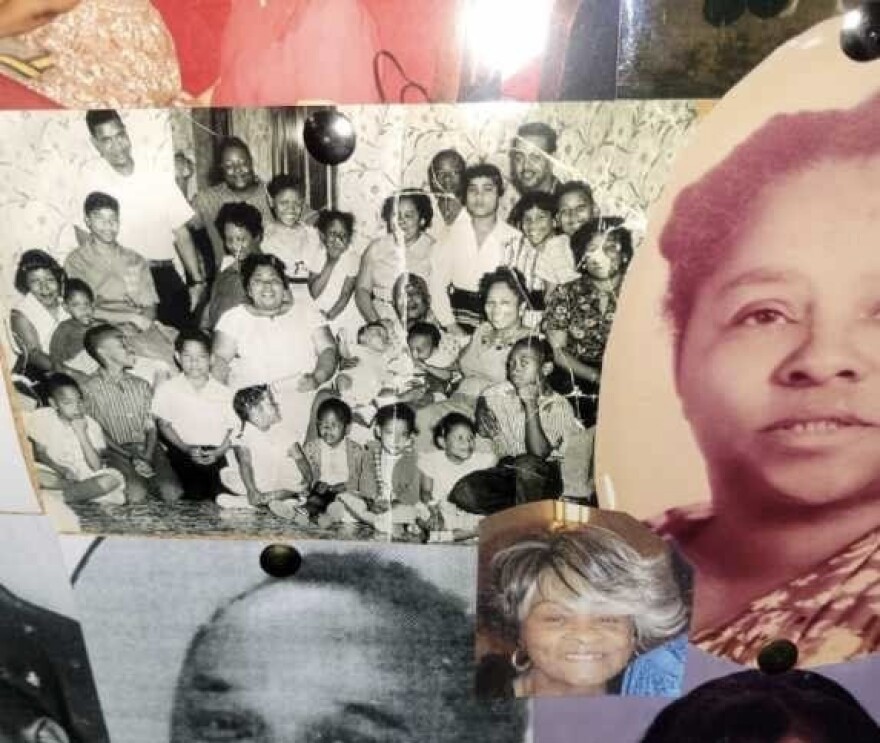
Meanwhile, Wings, the case manager, said people who are still struggling with insurance claims should seek out help from someone like him. He compared going through an insurance claim to preparing for court.
"The system has changed," Wings said. "Things have gotten to the point where homeowners need solid representation like they're going into a courtroom and they need a lawyer."
He said for insurance companies, it's all about their profit margins.
"It's not that the insurance companies are dishonest. This is America, this is big business, this is capitalism — everyone is trying to make money," Wings said. "The insurance company is designed to save money for themselves; they're not even dreaming of running those policies out to these limits."
Copyright 2025 St. Louis Public Radio



